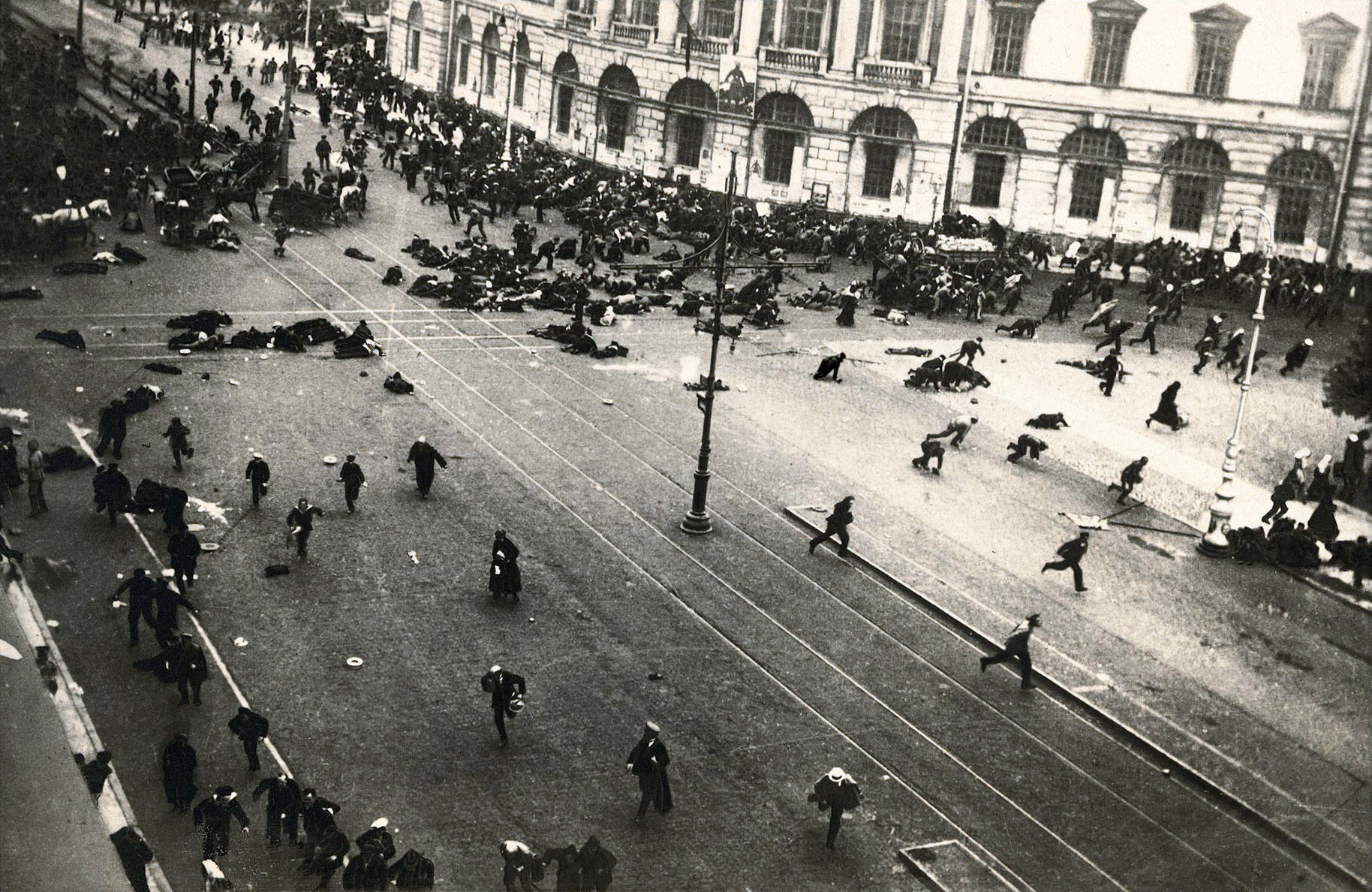Russia was geographically isolated from the munitions and supplies that would otherwise have come from the Allies. Despite Russia’s great resources in agriculture and potential for industry, transportation was inadequate from the beginning, and when the trains were used to move troops, food shortages developed in the cities. Losses in battle were staggering from the first; the Russians suffered nearly 4 million casualties during the first year of war.
By mid-1915 the center and left groups in the Duma, known as the Progressive Bloc, were urging moderate reforms, such as the end of discrimination against minority nationalities and an increase in the powers of the zemstvos. In the autumn of 1915, in answer to a demand by the Progressive Bloc for a cabinet that would be responsible to it and not to the czar, Nicholas dismissed the Duma and took personal command of the armies in the field, leaving his wife in authority in St. Petersburg. She in turn left matters in the hands of her favorite, Rasputin.
With the empress and Rasputin in control, a gang of shady adventurers, blackmailers, and profiteers bought and sold offices, speculated in military supplies, put in their own puppets as ministers, and created a series of scandals. Confusion, strikes, and defeatism mounted at home during 1916, while the armies at the front, lacking transport, equipment, supplies, and medical care, slowly bled to death. The conservatives began to denounce Rasputin publicly, and in December 1916 he was murdered.
Despite repeated warnings from moderates in the Duma that the government itself was precipitating a revolution by its failure to create a responsible ministry, the czar remained apathetic. When news of Rasputin’s death reached Berlin, the Germans saw a chance to knock Russia out of the war by promoting independence movements in the Ukraine, Poland, and Finland and by aiding Russian revolutionaries. Relatives of the imperial family and members of the Duma began to plot for Nicholas’s abdication. In the early months of 1917 all conditions favored revolution, but the revolutionaries were not prepared.

